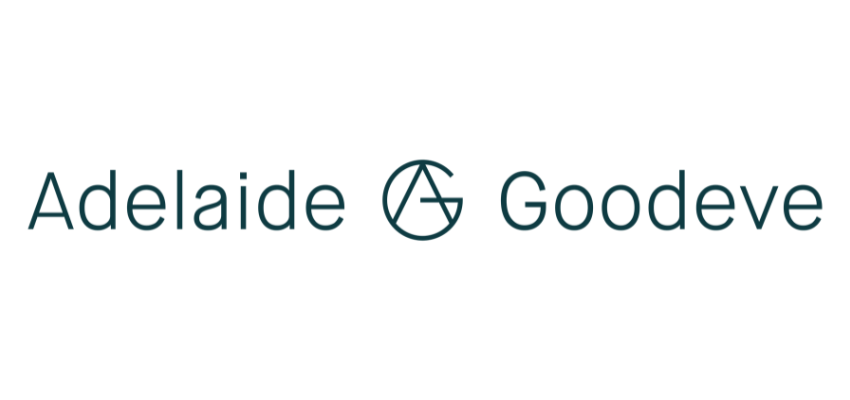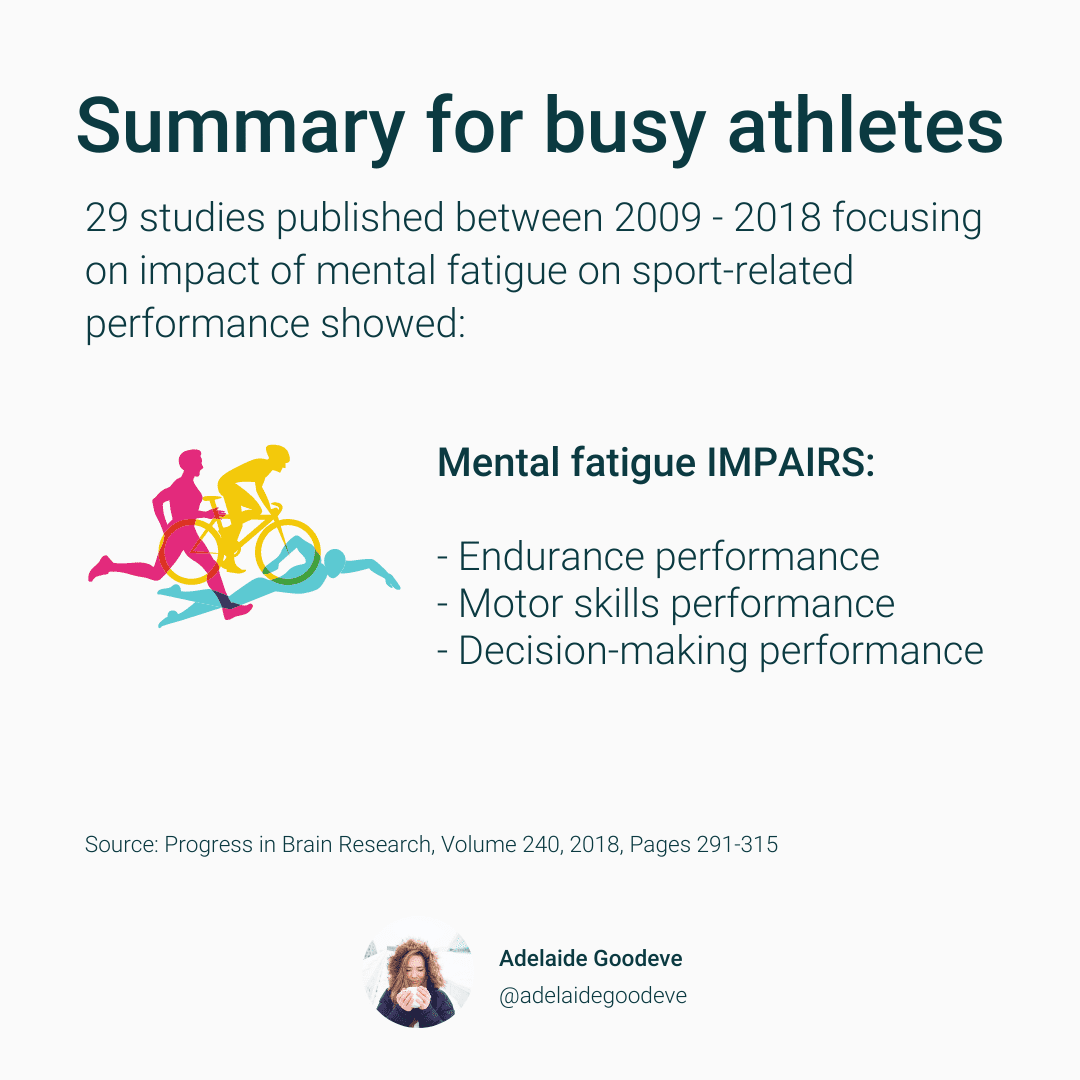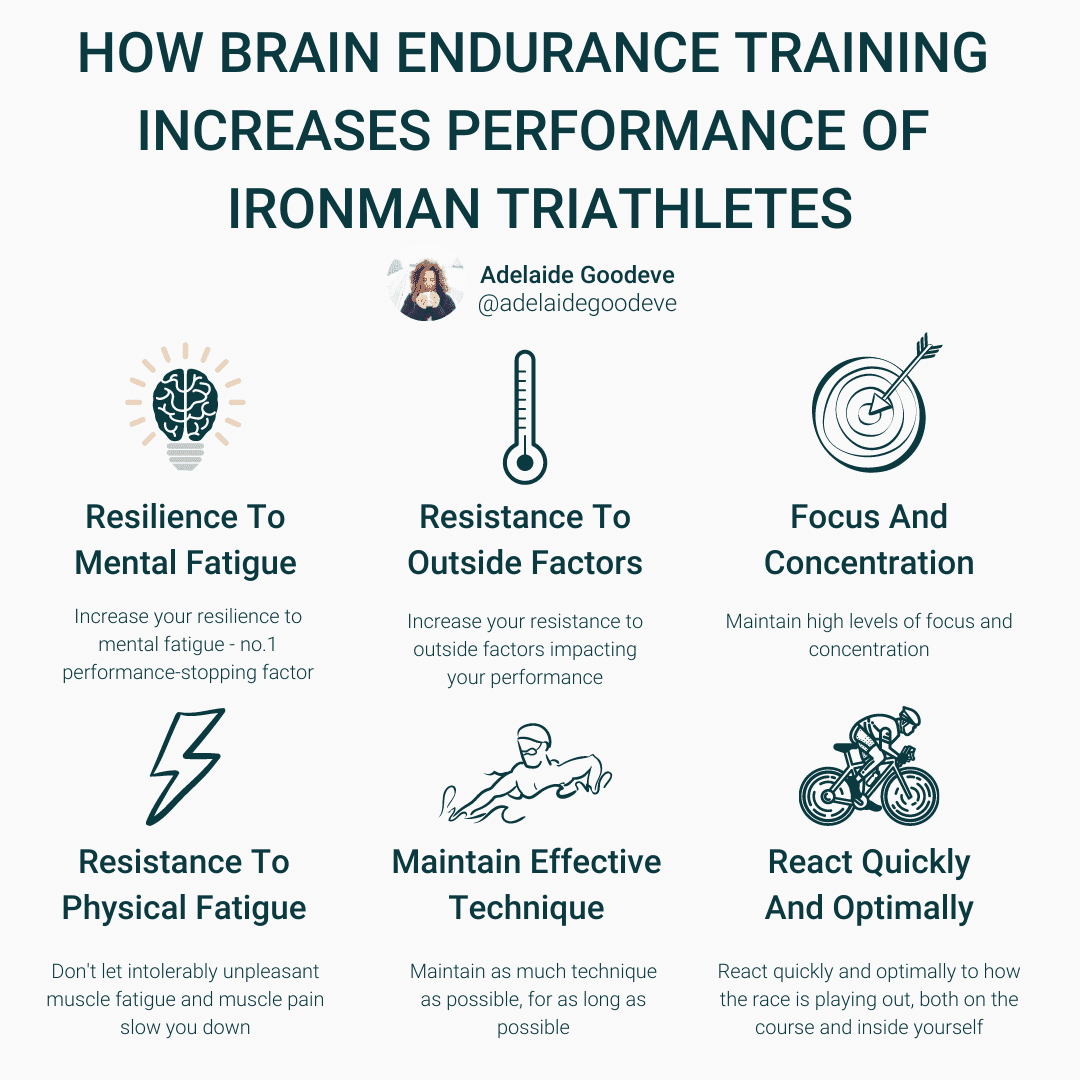How Brain Endurance Training transfers into improved athletic performance
/Brain Endurance Training (BET) is a specialised form of cognitive terracing designed to overload your brain. Think of the BET app as a ‘brain gym’, where you push your brain to work harder and train it to be more resilient to fatigue (when used correctly) - just like when you train your body.
During your training session you work your body physically hard to create the adaptions of improved strength, endurance and speed.
I do the same with your brain for improved performance in your chosen sport, from archery to triathlon and ski jumping.
Here’s how BET transfers into improved athletic performance:
BET trains your brain to sustain high levels of fatigue and still perform at an appropriate level. Science has showed that mental and physical fatigue are generated in the same areas of the brain. This means the sense of fatigue you feel after a tiring day at the office or hard training session is created in the same areas of the brain.
Importantly, science has also demonstrated that mental fatigue destroys performance, so much so that it’s been called the number one performance stopper (not peripheral signals from the heart, lungs or muscles).
You can therefore train your brain to be more resistant to mental and physical fatigue using a targeted cognitive training plan and your physical performance will benefit.
In any elite (or high-level amateur) sport, you’re always pushing your limits to perform at your best. Are you looking at all aspects of performance including the brain? Or is your focus only on strength, endurance, conditioning and skill training? World-class coaching in all of these areas is key, but without the brain, nothing is possible. You can be the best physically prepared athlete on the start line and still lose to your competitor with the better-prepared brain.
Just like there’s a right and wrong way to train your body, the same goes for your brain. BET isn’t new. It’s made up of many different cognitive tasks that have been in use for a really long time. BET is nothing like the brain games that are currently trending. There are very few similarities between sports psychology/mental coaching and BET, although they complement each other well.
BET is cognitive training in the form of technology-based drills specifically and deliberately designed to induce mental fatigue. This creates an adaptive response in your brain and increases your capacity to handler greater physical and mental loads. As a result, you can push much and for longer than you used to be able to, because the same amount of work makes you FEEL LESS TIRED.
Science has shown the more than 10 years that mental fatigue impairs physical performance and now with portable neuro performance technology that provides quantifiable measurements in progress, it’s accessible to all athletes.
Recent research demonstrates that mental fatigue impairs endurance exercise performance:
The effects of mental fatigue on sport-related performance
“... review the results of 29 studies published between 2009 and April 2018 and focusing on the impact of mental fatigue on sport-related performance.
Taken all studies together, it appears that mental fatigue impairs endurance performance, motor skills performance and decision-making performance.”
Link to study here.
Effects of Prior Cognitive Exertion on Physical Performance: A Systematic Review and Meta- analysis
“A total of 73 studies provided 91 comparisons with 2581 participants. Random effects meta-analysis showed a significant small-to-medium negative effect of prior cognitive exertion on physical performance.
Findings demonstrate that cognitive exertion has a negative effect on subsequent physical performance that is not due to chance and suggest that previous meta-analysis results may have underestimated the overall effect.”
Link to study here.
The cardinal exercise stopper: Muscle fatigue, muscle pain or perception of effort?
“Results of this two-part investigation suggest that perception of effort, rather than severe locomotor muscle fatigue or intolerably unpleasant muscle pain, is the cardinal exercise stopper during high-intensity aerobic exercise.”
Link to study here.
Mental fatigue impairs physical performance in humans
“In conclusion, our study provides experimental evidence that mental fatigue limits exercise tolerance in humans through higher perception of effort rather than cardiorespiratory and musculoenergetic mechanisms.”
Link to study here.
The limit to exercise tolerance in humans: Mind over muscle?
“These results challenge the long-standing assumption that muscle fatigue causes exhaustion during high-intensity aerobic exercise, and suggest that exercise tolerance in highly motivated subjects is ultimately limited by perception of effort.”
Link to study here.
Effects of mental fatigue on exercise decision-making
High cognitive demand and mental fatigue are linked to perceived exercise costs.
Mental fatigue and subjective evaluation predict choice to exercise or not.
Mental fatigue is associated with higher perceived exertion while exercising.
Link to study here.
Are you sure it’s mental fatigue that slows me down and not my muscles or heart rate?
Yes! We’re sure! Perceived exertion, also known as perception of effort or sense of effort, which is defined as the “conscious sensation of how heavy and strenuous a physical task is.” (Marcora, 2010 in Staiano and Marcora, 2014) and provides information about the intensity of a physical or mental activity. It’s a key factor of mental fatigue and physical performance.
The most widely used and known way to measure the rate of perceived exertion (RPE) is using the Borg Scale of Perceived Exertion. The Borg Scale matches how hard you feel you are working with a numerical value (0-10 or 6-20) and a word anchor (“very, very light/easy” and “very, very hard/hard”).
It is crucial to only rate the total inner feeling of exertion, the overall sensations and feelings of physical stress, effort and fatigue. The athlete must disregard any other factors including physical pain and breathlessness.
For example, if I’m pushing hard on my pedals on Highway 19 on the Ironman World Championships course and the temperature is exceeding 90 Fahrenheit, I may be able to differentiate between thermal discomfort (pain) and how hard it feels to push on the pedals (RPE).
[Read more about the Performance Benefits of Brain Endurance Training For Ironman Triathletes here.]
Another example, is if a biathlete has been skiing hard and is transitioning from skiing to target shooting, they may be able to differentiate between breathlessness and how hard it feels to shoot the target accurately (RPE).
[Discover the Performance Benefits of Brain Endurance Training For Biathletes here.]
When used correctly, RPE is the most effective measure of perception of effort. It indicates the amount of effort exerted during exercise, such as how hard it is to swim, ski or run at a certain pace, or how hard it is to cycle at a certain wattage.
What Generates Perception of Effort?
What actually generates perception of effort has been extensively debated. One of the most common scientific theories is that peripheral signals from the body (e.g. muscles, heart and lungs) are the main factors in generating the sense of effort we feel in response to physical activity.
Walter Staiano, Sport Scientist and Neuro-Performance consultant, says it’s clear that the incorrect use of the RPE scale and inclusion of other sensations in the RPE (e.g. physical pain and breathlessness) has supported this theory.
In the last 20 years numerous scientific studies have challenged this theory and provided new insight.
Studies show that feedback from muscles, heart, and lungs does not contribute significantly to perception of effort during exercise. RPE is generated independent of these peripheral signals and there’s strong evidence supporting that RPE is centrally generated in the brain.
These studies used powerful analgesics or nerves blockade drugs injected directly into the participant via epidural, which completely numbed any peripheral signal from the waist down.
Following the epidural, participants performed an all-out physical exercise (cycling). Although researchers expected a boost in performance and a significant reduction in RPE, they did not find any. Sense of perceived exertion increased and performance was unchanged.
Studies using heart rate beta blockades and anaesthetics to block signals from the lungs and heart, supported that RPE may not be generated by peripheral signals.
This theory also explains why deliberately inducing mental fatigue using cognitive tasks increases perception of effort and reduces subsequent physical performance (with physiological parameters unchanged).
Any changes in perception of effort as a result of cognitive and/or physical manipulations affects your performance. It is therefore really important to clearly understand all of the possible explanations and mechanisms of perception of effort, both generated from peripheral signals and the brain.
Do you have fMRI and EEG studies backing this up?
fMRI and EEG studies further prove that cognitive load increases perceived exertion, which leads to impaired performance. Muscle pain or fatigue and other physiological parameters are not significantly unaffected.
A 2019 study presented by Sswitch shows how an increase in cognitive load after 90 minutes of demanding and continuous cognitive tasks can produce a negative effect in vigilance, reaction time and perceived effort.
More importantly, EEG measures helped to unveil the neurophysiology behind such changes in performance due to fatigue, and it can help to quantify cognitive load in an objective manner.
Moreover, neurophysiological assessments of load and fatigue will help us better understand how the brain works and copes with an increasing load. It may also help us to measure possible brain changes in responses to different types of cognitive trainings (e.g. BET).
Read the study here.
Neural Correlates of Perception of Effort: A Brain Imaging Study
“During the preliminary test the eccentric fatiguing protocol induced a significant 17% reduction in maximal torque in the fatigued leg (MVC fatigued pre: 201±17 Nm and MVC fatigued post: 165±9 Nm [p<0.001]), but not in the non- fatigued leg.
Therefore, during the subsequent weight lifting task, the fatigued leg could exert on average 17% less force than the non-fatigued leg.
Participants did not report any significant pain in their fatigued leg. This result was confirmed by the fact that PPT (Pressure Pain Threshold test) and muscle soreness scale was not significantly different between the legs and across all the three different muscles assessed, at any time during the test. We did not find a significant main effect of muscle fatigue for this variable.
Blood lactate concentration was also not affected by the eccentric fatiguing protocol (lactate pre, 0.8 ± 0.2 mmol·l−1 and lactate post, 1.0 ± 0.3mmol·l−1 [p = 0.498]).
As expected, the type of eccentric protocol with rest in between sessions did not produce any metabolic accumulation at the end of the fatiguing protocol.
During the weight lifting task, rating of perceived effort increased significantly during the scanning session across the runs and increased even higher in the fatigued leg compared to the non-fatigue leg (p =0.01).
These findings confirms and strengthens previous results on the correlation between RPE and central motor command and it may suggest the role of the brain centres related to the effort - based decision-making mechanisms such as anterior cingulate cortex in the develop of the perception of effort.”
Read the study here.
The solution to reducing the impact of mental fatigue on your performance
Brain Endurance Training (BET) is a specialised form of cognitive training designed to increase your resistance to fatigue. It trains your brain to endure more when the negative effects of tiredness and mental fatigue start kicking in.
From this perspective, BET isn’t designed to target specific motor abilities that transfer into your sport.
BET is a powerful training tool that enhances your mental toughness and neurocognitive ability to sustain more effort during any sports performance. One of the key features is that it reduces your perception of effort while performing a sport, like triathlon, at a given load, sped and power.
The natural consequence of reduced effort is your ability to last longer (you’ll experience a small decrease in performance over time due to mental fatigue) in any type of mental and/or physical activity.














